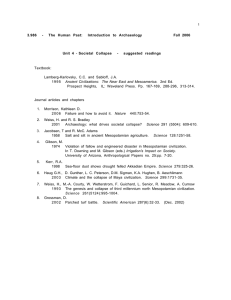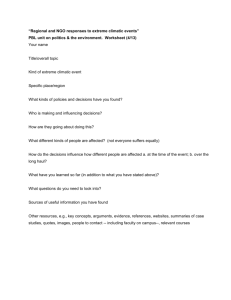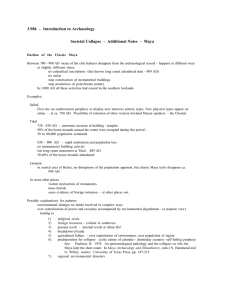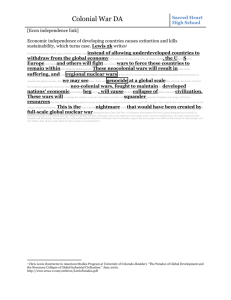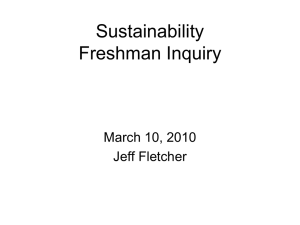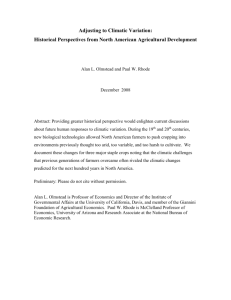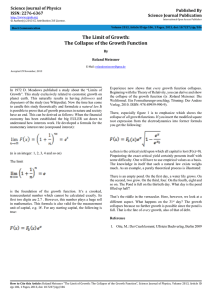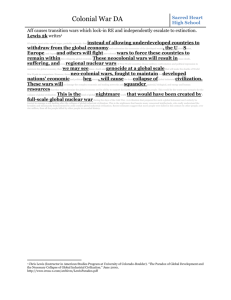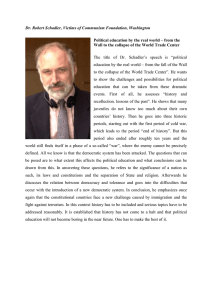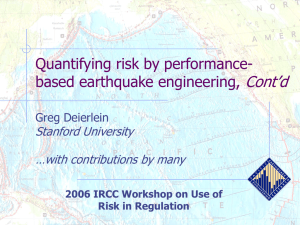3.986: Introduction to Archaeology Third Paper topic -
advertisement
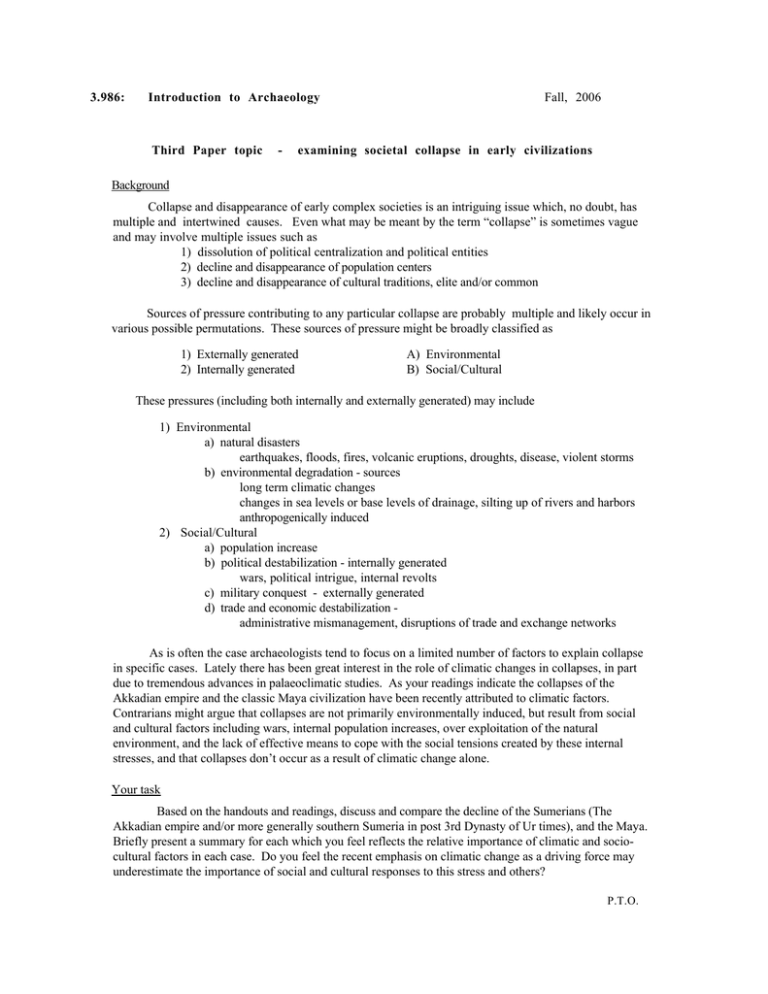
3.986:
Introduction to Archaeology
Third Paper topic
-
Fall, 2006
examining societal collapse in early civilizations
Background
Collapse and disappearance of early complex societies is an intriguing issue which, no doubt, has
multiple and intertwined causes. Even what may be meant by the term “collapse” is sometimes vague
and may involve multiple issues such as
1) dissolution of political centralization and political entities
2) decline and disappearance of population centers
3) decline and disappearance of cultural traditions, elite and/or common
Sources of pressure contributing to any particular collapse are probably multiple and likely occur in
various possible permutations. These sources of pressure might be broadly classified as
1) Externally generated
2) Internally generated
A) Environmental
B) Social/Cultural
These pressures (including both internally and externally generated) may include
1) Environmental
a) natural disasters
earthquakes, floods, fires, volcanic eruptions, droughts, disease, violent storms
b) environmental degradation - sources
long term climatic changes
changes in sea levels or base levels of drainage, silting up of rivers and harbors
anthropogenically induced
2) Social/Cultural
a) population increase
b) political destabilization - internally generated
wars, political intrigue, internal revolts
c) military conquest - externally generated
d) trade and economic destabilization ­
administrative mismanagement, disruptions of trade and exchange networks
As is often the case archaeologists tend to focus on a limited number of factors to explain collapse
in specific cases. Lately there has been great interest in the role of climatic changes in collapses, in part
due to tremendous advances in palaeoclimatic studies. As your readings indicate the collapses of the
Akkadian empire and the classic Maya civilization have been recently attributed to climatic factors.
Contrarians might argue that collapses are not primarily environmentally induced, but result from social
and cultural factors including wars, internal population increases, over exploitation of the natural
environment, and the lack of effective means to cope with the social tensions created by these internal
stresses, and that collapses don’t occur as a result of climatic change alone.
Your task
Based on the handouts and readings, discuss and compare the decline of the Sumerians (The
Akkadian empire and/or more generally southern Sumeria in post 3rd Dynasty of Ur times), and the Maya.
Briefly present a summary for each which you feel reflects the relative importance of climatic and socio­
cultural factors in each case. Do you feel the recent emphasis on climatic change as a driving force may
underestimate the importance of social and cultural responses to this stress and others?
P.T.O.
Advice
1.
Appropriate length of the text is 7 to 8 pages: typed, double-spaced with adequate margins.
It may be longer, but don't exceed 10 pages.
2.
Include a title page and number your pages of text.
3.
Reference all sources you use. (See style handout accompanying first paper topic on website.)
4.
Include a 'References Cited' ('Bibliography') section (see style handout for proper format).
5.
Proofread your paper carefully.
6.
Late papers will be penalized, unless prior arrangements for late submission have been made.
PAPER DUE:
Tuesday, December 5
Suggested Readings
Textbook:
Lamberg-Karlovsky, C.C. and Sabloff, J.A.
1995
Ancient Civilizations: The Near East and Mesoamerica. 2nd Ed.
Prospect Heights, IL: Waveland Press. Pp. 167-169, 288-296, 313-314.
Journal articles and chapters
1. Morrison, Kathleen D. 2006
Failure and how to avoid it. Nature 440:753-54.
2. Weiss, H. and R. S. Bradley
2001
Archaeology: what drives societal collapse? Science 291 (5504), pp. 609-610.
3. Jacobsen, T and R. McC. Adams 1958
Salt and silt in ancient Mesopotamian agriculture. Science 128:1251-58.
4.
Gibson, M.
1974 Violation of fallow and engineered disaster in Mesopotamian civilization.
In T. Downing and M. Gibson (eds.) Irrigation's Impact on Society.
University of Arizona, Anthropological Papers no. 25:pp. 7-20.
5. Kerr, R.A. 1998
Sea-floor dust shows drought felled Akkadian Empire. Science 279:325-26.
6. Haug G.H., D. Gunther, L. C. Peterson, D.M. Sigman, K.A. Hughen, B. Aeschlimann
2003
Climate and the collapse of Maya civilization. Science 299:1731-35.
7.
Weiss, H., M.-A. Courty, W. Wetterstrom, F. Guichard, L. Senior, R. Meadow, A. Curnow
1993 The genesis and collapse of third millennium north Mesopotamian civilization.
Science 261(5124):995-1004.
8. Grossman, D.
2002
Parched turf battle. Scientific American 287(6):32-33. (Dec. 2002)
